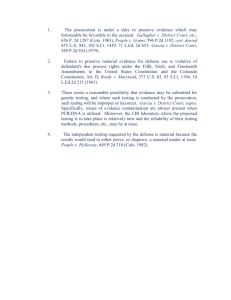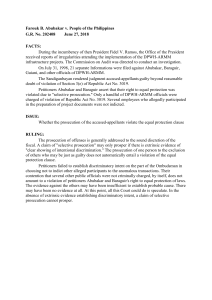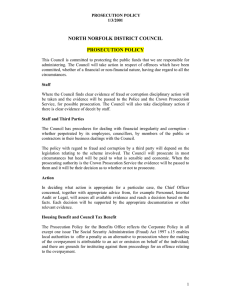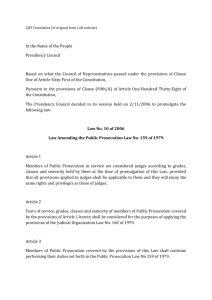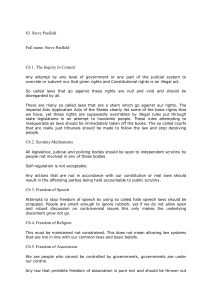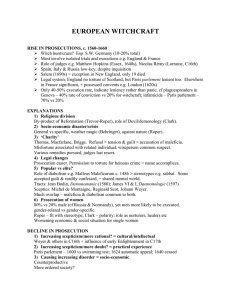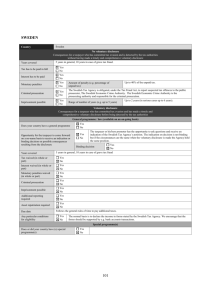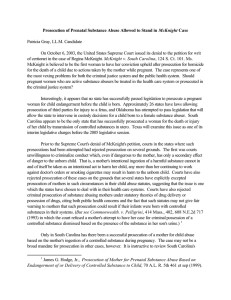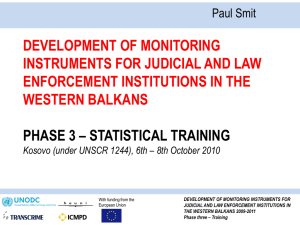Sending cases to the Crown Court for trial
advertisement
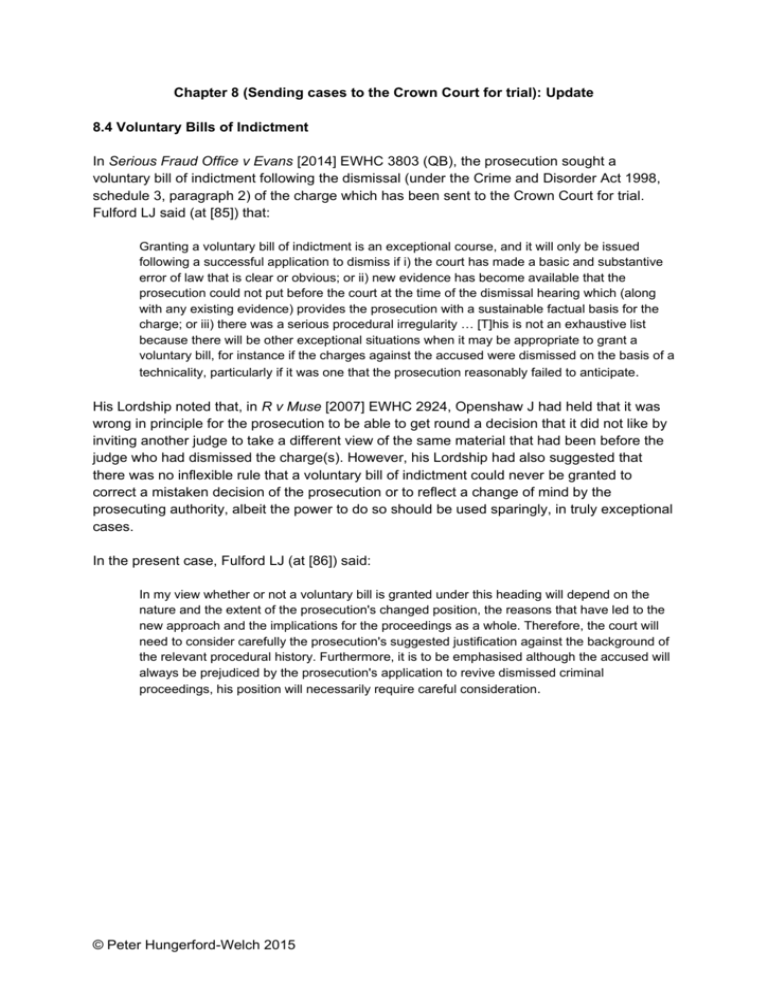
Chapter 8 (Sending cases to the Crown Court for trial): Update 8.4 Voluntary Bills of Indictment In Serious Fraud Office v Evans [2014] EWHC 3803 (QB), the prosecution sought a voluntary bill of indictment following the dismissal (under the Crime and Disorder Act 1998, schedule 3, paragraph 2) of the charge which has been sent to the Crown Court for trial. Fulford LJ said (at [85]) that: Granting a voluntary bill of indictment is an exceptional course, and it will only be issued following a successful application to dismiss if i) the court has made a basic and substantive error of law that is clear or obvious; or ii) new evidence has become available that the prosecution could not put before the court at the time of the dismissal hearing which (along with any existing evidence) provides the prosecution with a sustainable factual basis for the charge; or iii) there was a serious procedural irregularity … [T]his is not an exhaustive list because there will be other exceptional situations when it may be appropriate to grant a voluntary bill, for instance if the charges against the accused were dismissed on the basis of a technicality, particularly if it was one that the prosecution reasonably failed to anticipate. His Lordship noted that, in R v Muse [2007] EWHC 2924, Openshaw J had held that it was wrong in principle for the prosecution to be able to get round a decision that it did not like by inviting another judge to take a different view of the same material that had been before the judge who had dismissed the charge(s). However, his Lordship had also suggested that there was no inflexible rule that a voluntary bill of indictment could never be granted to correct a mistaken decision of the prosecution or to reflect a change of mind by the prosecuting authority, albeit the power to do so should be used sparingly, in truly exceptional cases. In the present case, Fulford LJ (at [86]) said: In my view whether or not a voluntary bill is granted under this heading will depend on the nature and the extent of the prosecution's changed position, the reasons that have led to the new approach and the implications for the proceedings as a whole. Therefore, the court will need to consider carefully the prosecution's suggested justification against the background of the relevant procedural history. Furthermore, it is to be emphasised although the accused will always be prejudiced by the prosecution's application to revive dismissed criminal proceedings, his position will necessarily require careful consideration. © Peter Hungerford-Welch 2015
